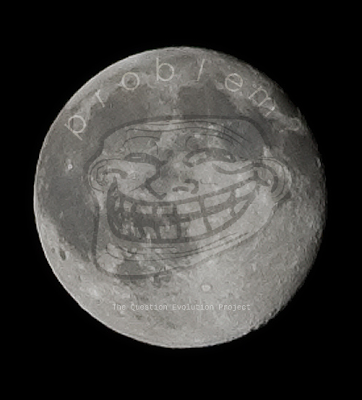The Lunar Impact Hypothesis: A Lesson in Bad Science
Once upon a time, a celestial body was carelessly wandering through our solar system. It smacked into the earth, and eventually the moon was formed. This is what passes for science in some areas, but the lunar impact hypothesis is not striking at all. Neither is the new version.
There are no good working models as to how the moon formed, so secularists did that secularist thing they do so often and chose the best of the worst concept. The winner was the big ol' smack hypothesis even though it was refuted long ago.
The logical conclusion from astronomical evidence (and a prairie schooner-full of evidence in our own solar system) is that the earth, moon, solar system, stars, the universe and everything was created recently. But no, someone wants to revisit the lunar impact business and say it's a "lesson in how science works". No, kitten, it's a lesson in materialistic desperation and how not to do science.
There are no good working models as to how the moon formed, so secularists did that secularist thing they do so often and chose the best of the worst concept. The winner was the big ol' smack hypothesis even though it was refuted long ago.
The logical conclusion from astronomical evidence (and a prairie schooner-full of evidence in our own solar system) is that the earth, moon, solar system, stars, the universe and everything was created recently. But no, someone wants to revisit the lunar impact business and say it's a "lesson in how science works". No, kitten, it's a lesson in materialistic desperation and how not to do science.
A new model for the Moon’s formation is claimed to advance our understanding of the past, and to be “a lesson in how science works.” But the actual lesson being taught is quite different.To hit on the rest of the article, click on "'A lesson in how science works'?" For your additional education, click on "(Yet More) Evidence Against the Lunar Impact Theory".
First, some background. Among secular astronomers, the most widely-accepted model for the Moon’s origin is known as the giant impact hypothesis. Supposedly, about four billion years ago, a Mars-sized object crashed into the newly-formed Earth. The collision created a debris cloud around our planet; some of the debris fell back down, while the rest coalesced together in space and eventually formed into our Moon.
Despite its popularity, this has never been a good model. It requires a credibility-straining series of conditions that are just right. Also, it has always had problems fully explaining the Moon’s composition. There are other issues too.
